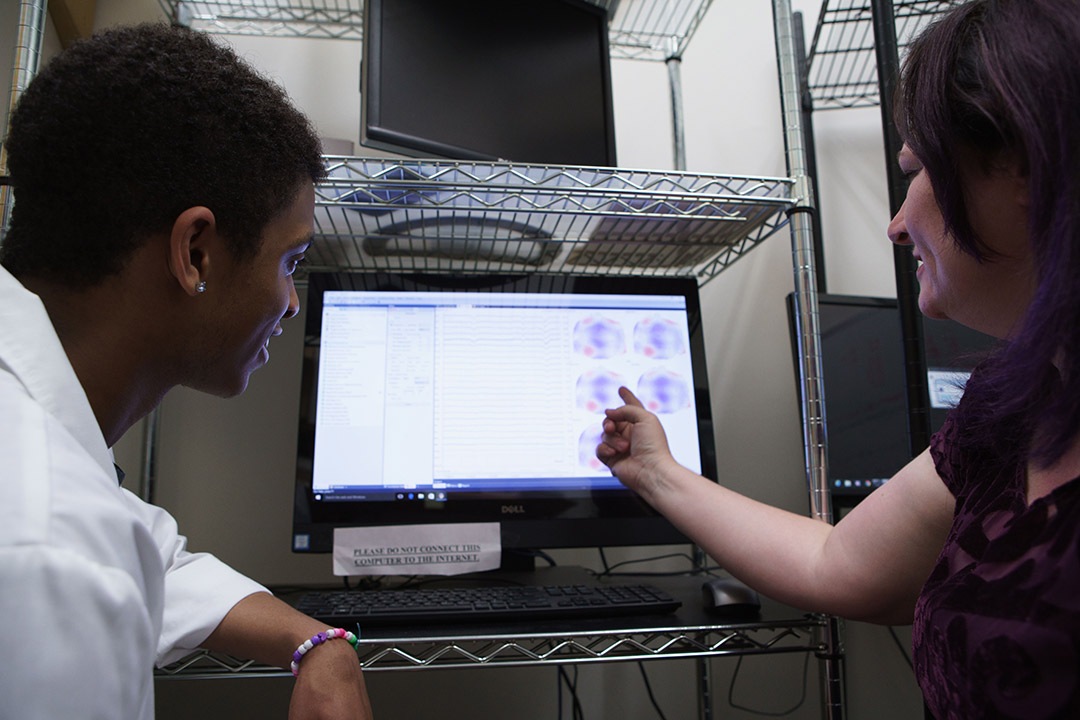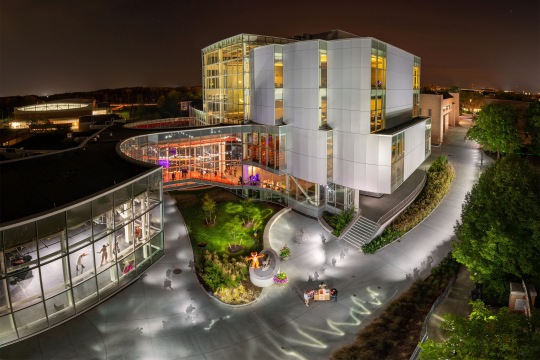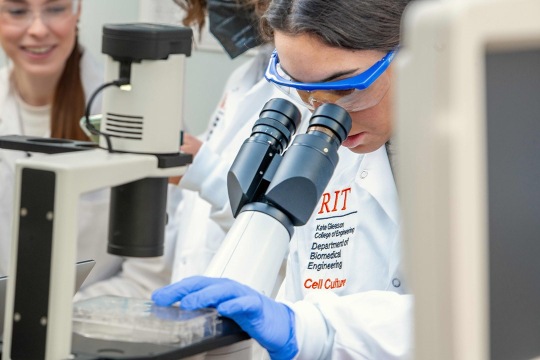Rochester Institute of Technology is offering a new bachelor’s degree in neuroscience beginning this fall.
The Bachelor of Science degree will focus on how the brain works and how to apply that knowledge to develop systems for new frontiers, such as advancing artificial intelligence, combating neurodegenerative diseases, and assisting those with learning disabilities.
“Neuroscience is considered to be one of the last frontiers of science,” said Elena Fedorovskaya, program head and research faculty in the College of Science. “There is a lot of attention because we’ve made so much progress in all kinds of science and engineering, but it became obvious that we also need to tackle how the brain works and how our mind is enabled by brain functioning.”
Neuroscience students will get hands-on experience all four years starting with core skills and moving to advanced experimental research methods. Research projects within the discipline will touch on areas such as prosthetics, games, and machine learning. Active research laboratories will focus on comparative cognition, psychopathology, color perception, facial perception, and multisensory integration in VR/AR.
The program is an interdisciplinary collaboration between the College of Science and the College of Liberal Arts.
“Probably 20 to 30 years ago, if you went into neuroscience you were going to go into basic research,” said Rebecca Houston, associate professor in the Department of Psychology in the College of Liberal Arts, who is involved in heading the program. “But in recent years it has exploded in terms of intersecting across different fields and in learning new ways that you can apply it.”
Degree tracks in neurobiology, computational neuroscience, or behavior neuroscience allow students to focus on specific areas, while electives are available in a wide variety of topics, such as biology, chemistry, color science, electrical engineering, imaging science, philosophy, and psychology.
“It’s a very flexible program,” added Fedorovskaya. “The program has ample room for students to go and find their own interests with the help of an adviser or program director. We have people who are interested and actively pursuing research that is related to neuroscience spread out around the university.”
Outside of the classroom and laboratory, RIT offers numerous student clubs with a neuroscience focus. The combination of academic and extracurricular opportunities provides a variety of career prospects for students, from neurosurgery to clinical psychology to social work or artificial intelligence systems engineering.
“By combining this new degree with other coursework and extracurriculars available at RIT, it makes the program uniquely attractive,” said Houston. “RIT has some of the best and most unique students. Being able to attract those students that are interested in focusing on neuroscience is really exciting.”
Seventeen neuroscience students will begin this fall with the hope that the program will continue to grow. For more information on RIT’s neuroscience BS program, including how to apply, visit the program website.




